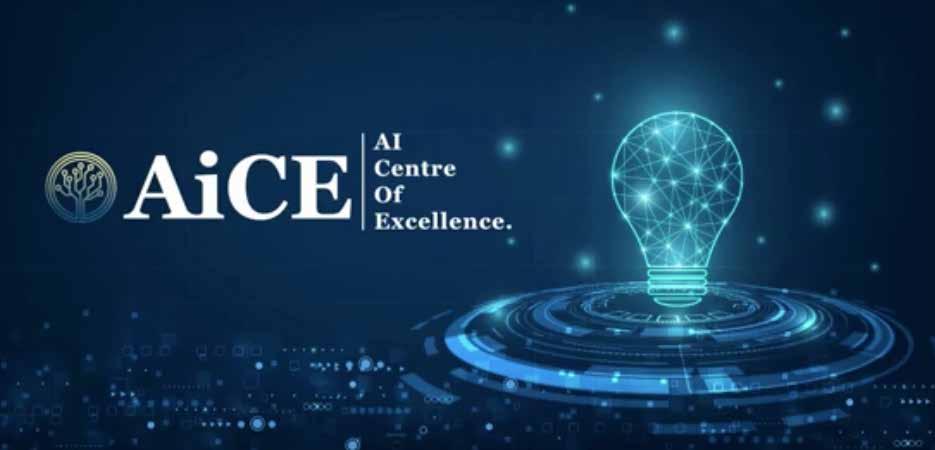
4 minute read
Kenya’s AICE to train 1000 AI engineers in 3 years
PUTTING AFRICA ON THE AI WORLD MAP: AICE TO TRAIN 1000 AI KENYAN ENGINEERS IN THE NEXT 3 YEARS
The 2019 Global AI Talent report puts the number of artificial intelligence (AI) experts in the world at 36 524. The report estimated that at least half of these were in the US, with only five percent in Africa. LinkedIn data shows that demand for AI talent grew by 74% between 2016 and 2019.
As Kenyan data scientist Claire Matuka (pictured) points out, it stands to reason that there’s only a few AI experts in Kenya and East Africa. “ AI is still relatively new in Africa and despite the fact that there are thousands of graduates from East African Universities every year, there still remains a huge skills gap in the AI ecosystem,” she adds.
Matuka last September teamed up with John Kamara, Carol Muchemi and Natasha Ochiel to establish the Artificial Intelligence Centre of Excellence (AICE). Matuka says AICE offers a unique foundation as an AI championing Centre in Africa aimed at building innovations that will create jobs and drive human wealth in the artificial intelligence landscape.
“The key objective is placing Africa on the AI world map. As Africans, the team has a better understanding of the challenges faced and is better placed to develop African solutions. Statistics show that Kenya ranks first when it comes to governance readiness for artificial intelligence which is quite exciting,” she says.
She believes Africa holds great untapped talent, which once harnessed, can help solve some of the regional challenges, automate processes and improve the progress of technology particularly in Africa.
“AICE will spearhead development of Africa’s AI ecosystem through the world’s leading innovation platforms and identify areas AI needs to be integrated into societal sectors in Kenya to solve real time problems. AI technology will contribute $15-trillion to the global economy, the Centre is motivated to place Africa at the centre of this,” says Matuka.

One of AICE’s main goals is to train 1000 AI engineers in the next three years. In addition some of the organisation’s main objectives include helping create new smarttech driven companies that will drive Kenya’s Vision 2030; solving unique African solutions through AI, and making sure Kenya stays on the map for foreign direct investment in the knowledge space.
In January AICE held its inaugural AI for Leaders Round Table. The event, which brought together over 50 CEOs and business leaders in Kenya, sought to provide a platform to discuss the potential for AI in business in Africa. Matuka explains that some of the key take-aways from the event included the fact that the potential for AI in Africa cannot be overstated. Other key insights from the round table were that resources must be put in place to build capacity, run research and development (R&D) work, and the need for conducive collaborative policies around AI.
AICE is incubated under Nairobi-based ADA Labs Africa which currently funds the organisation. So far the organisation has provided AI as a service to other startups incubated by Ada Lab Africa. These include Afya Rekod, Twaa, Paylend, and Ecobba. Mutuka says the Centre is looking to tap investors to fund some if its R&D projects.
AICE training programme
The Centre is in the midst of training its first cohort of engineers through its AICE AI training programme. Matuka explains that the outcome driven-programme aims to transform data scientists and python experts into AI and machine learning (ML) engineers by enabling them to solve real industry use cases. The four-month long programme covers Python programming, data cleaning and preparation, data science, machine learning algorithms, and neural networks
AICE has partnered with Financial Sector Deepening Kenya (FSDK) and AI Commons to facilitate training. “The program is designed for working professionals and graduates, and leverages on AI Commons’ pool of experts, FSDK’s understanding of local needs for growth and includes interactive live classes, access to teaching assistants, practical lab works and online resources and will include a globally recognised certification upon completion,” she says.
Matuka believed the initiative will build “the next level” of data scientists and AI engineers who will bridge the knowledge gain in AI in Africa, and the rest of the world. “AICE is proud to be training the first cohort of AI engineers in Kenya and Africa. The programme welcomed 30 individuals (both men and women in Kenya) from various backgrounds, these include software engineers, data scientists, full stack developers, statisticians and even undergraduate students. The programme has been running seamlessly for the past 4 weeks and the Centre looks forward to helping the students gain skills and practically apply themselves to solve current and future problem,” she adds.
Matuka says sourcing talent has also been a “hiccup” for AICE. “We have an untapped talent who are equipped and skilled in mathematics and statistics. Ergo, AICE has created a bridge for this gap to ensure that we always have a hub of talent with the necessary skill set.
Matuka says the main challenge facing AICE is around the popular notion that AI will take over jobs. While this might be the case, she explains, AI technology is set to create more jobs.”AICE is here to sensitise and demystify AI, this way everyone has an understanding of this great “monster” at a human level.” ai










